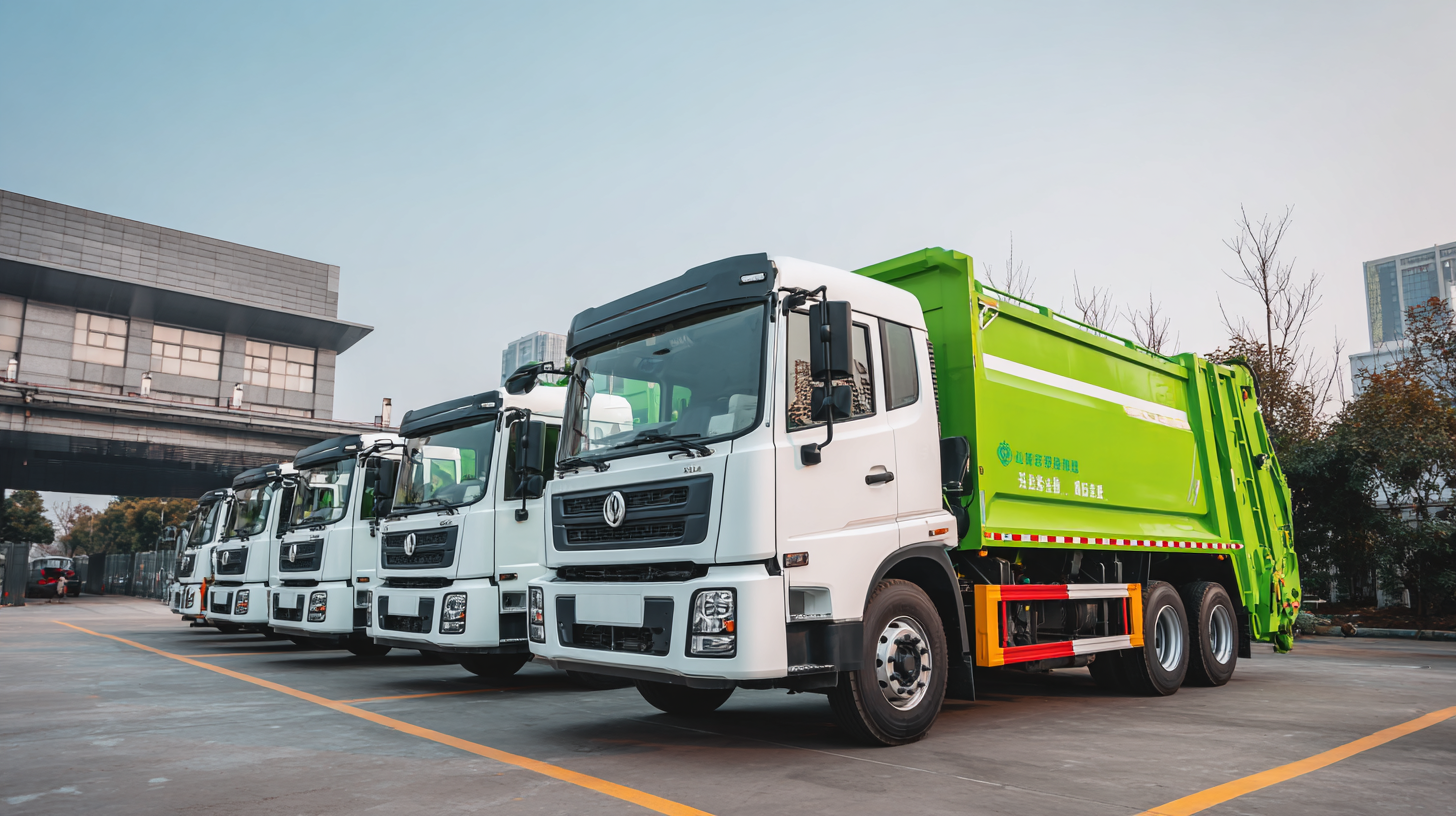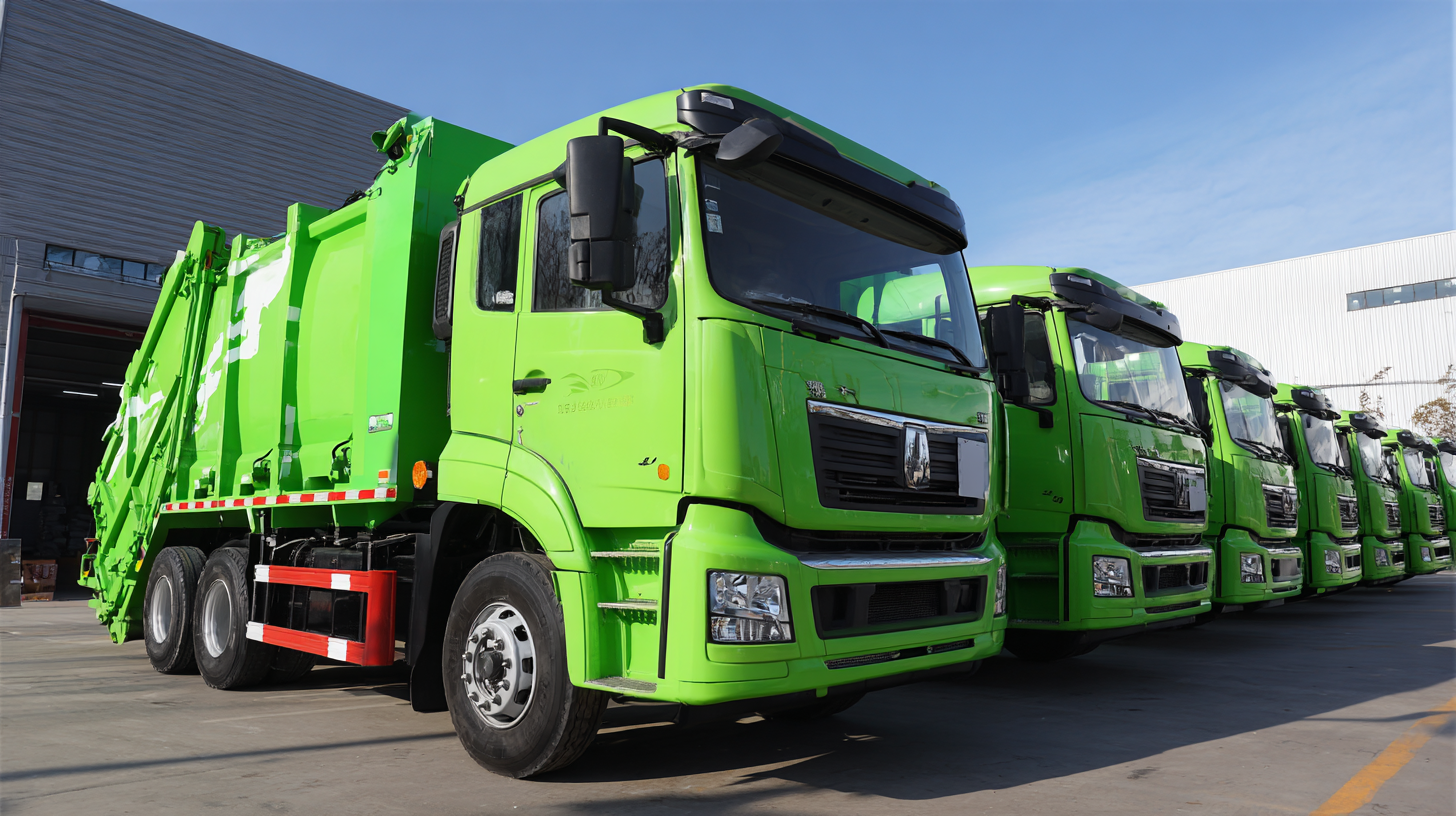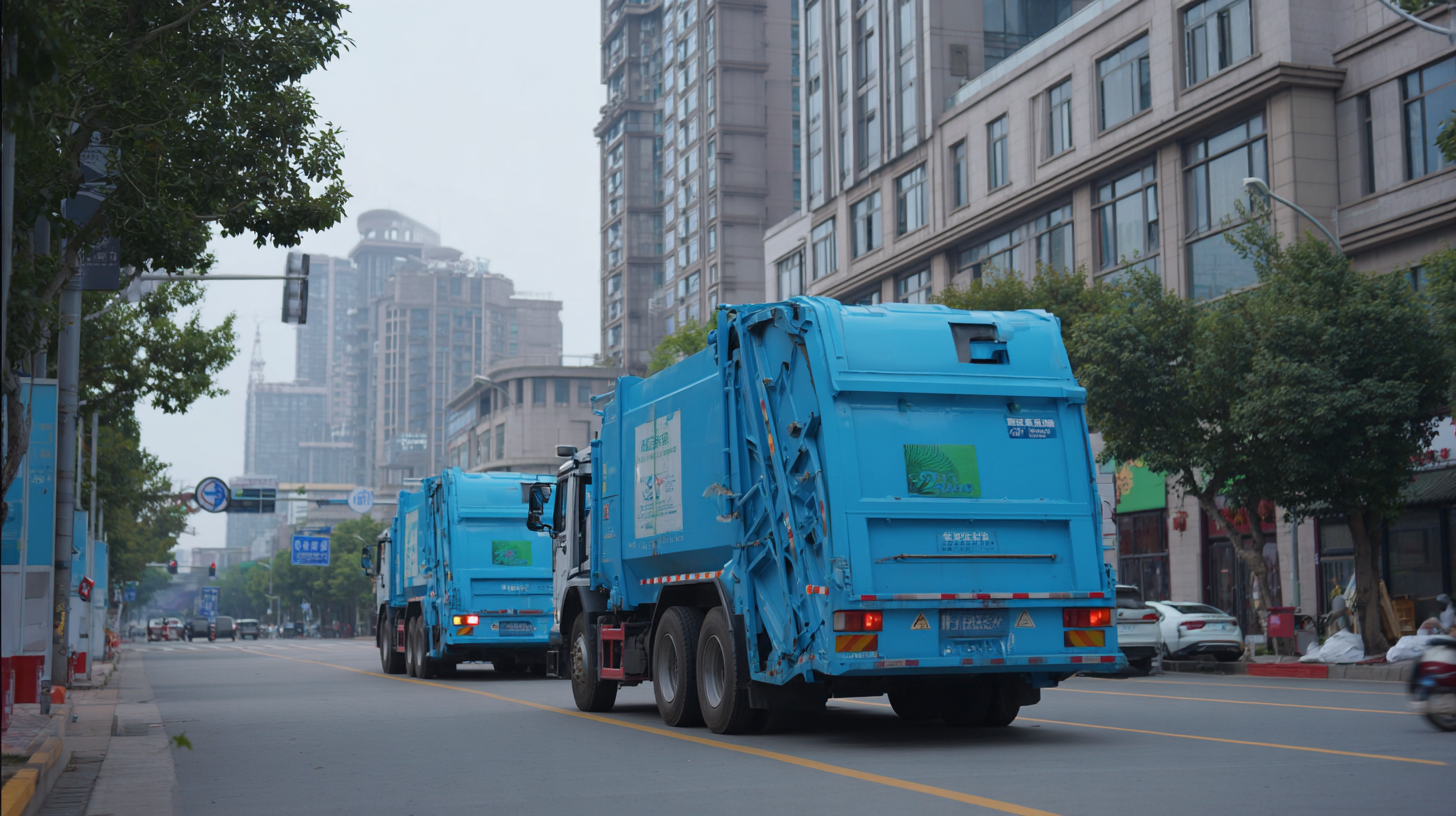Transforming Waste Management: China’s Premium Garbage Compactors Set New Global Standards
As urban populations continue to surge, effective waste management solutions are more crucial than ever. According to a report by the World Bank, global waste generation is expected to increase by 70% by 2050, reaching an estimated 3.4 billion tons annually.
In response to this mounting challenge, China has emerged as a leader in innovating waste management technologies, particularly through the development of premium garbage compactors. These advanced machines are designed to maximize efficiency, reduce space, and minimize environmental impact.

By implementing cutting-edge features such as smart monitoring systems and durable materials, China’s garbage compactors are not only setting new standards for operational effectiveness but are also poised to influence waste management practices worldwide.
This blog will delve into the technical specifications of these garbage compactors and offer insights on how they are transforming the global landscape of waste disposal.
Emerging Trends in Waste Management Innovations
In recent years, the waste management sector has witnessed a significant transformation driven by technological innovations and a shift towards sustainability. Emerging trends indicate a growing demand for autonomous operations and digitalization, with experts predicting that by 2025, nearly 70% of waste management companies will adopt AI and IoT solutions to enhance operational efficiency. This advancement not only streamlines processes but also reduces human errors, promoting a more sustainable approach to waste disposal.

One notable trend is the rise of compactors designed to optimize space and enhance recycling efforts. These compactors are increasingly equipped with smart technology, allowing for real-time monitoring of waste levels and predictive analysis to improve collection routes. Furthermore, as sustainability becomes a crucial focus, projects aimed at recycling and converting waste into energy are proliferating, contributing to a circular economy that minimizes waste and maximizes resource recovery.
Tips: To stay ahead in the waste management industry, companies should invest in training their workforce on new technologies and sustainable practices. Additionally, embracing collaborative efforts with startups focused on eco-innovations can foster a culture of continuous improvement and adaptation to industry trends. Exploring advanced building materials can also enhance the sustainability of facilities associated with waste management practices.
The Role of Advanced Technology in Garbage Compactor Design
In recent years, China's garbage compactors have undergone a remarkable transformation, driven by advanced technology that significantly enhances efficiency and sustainability. Incorporating innovative designs such as smart sensors and AI algorithms, these compactors optimize waste collection processes by automatically adjusting compaction force based on load, thus maximizing space utilization. This technological prowess not only reduces the frequency of waste collection but also minimizes greenhouse gas emissions associated with transportation, heralding a new era in waste management.
Additionally, the integration of IoT connectivity allows for real-time monitoring of waste levels and operational status. This data-driven approach equips municipalities with valuable insights to manage resources more effectively, plan routes, and reduce operational costs. The emergence of durable materials and energy-efficient systems in these compactors further underscores China’s commitment to establishing global standards in waste management, reflecting a broader trend towards environmental responsibility and urban sustainability. By embracing advanced technology, China is setting a precedent in transforming how waste is managed worldwide, with implications that extend far beyond its borders.
Transforming Waste Management: China’s Premium Garbage Compactors Set New Global Standards
| Feature | Standard Measurement | Advanced Technology Integration | Environmental Impact |
|---|---|---|---|
| Compression Ratio | 4:1 | Adaptive Compression Algorithms | Reduces landfill space |
| Power Consumption | 1.5 kWh per cycle | Energy-efficient motors | Lower carbon footprint |
| Capacity | 3 m³ | Smart load sensors | Optimized waste collection |
| Noise Level | Below 75 dB | Noise-dampening technologies | Less disruption in urban areas |
| Material Durability | 10 years | Corrosion-resistant coatings | Longer lifecycle, less waste |
Sustainability and Environmental Impact of Premium Compactors
The introduction of premium garbage compactors in China is revolutionizing waste management practices by significantly enhancing sustainability efforts. According to a report by the International Solid Waste Association, effective compaction can reduce the volume of waste by up to 80%, which minimizes the frequency of waste collection and transportation. This reduction not only curbs greenhouse gas emissions associated with waste trucks but also conserves resources and energy needed for waste processing.
Furthermore, these advanced compactors utilize smart technology to optimize routes and schedules, leading to increased efficiency. A study by the World Bank suggests that proper waste management can decrease overall urban waste emissions by nearly 50%. As China sets new global standards with these premium compactors, they are paving the way for environmentally friendly practices that could potentially be adopted worldwide, encouraging other countries to follow suit in the fight against urban waste challenges. The integration of sustainability in waste management is not just a local concern but a pressing global issue, requiring immediate attention and innovative solutions.

China's Competitive Edge in Global Manufacturing Standards
In recent years, China has emerged as a leader in global manufacturing standards, particularly in the waste management sector. The introduction of premium garbage compactors has not only transformed the efficiency of waste disposal but has also set a new benchmark for environmental responsibility. These innovative machines utilize cutting-edge technology to reduce waste volume significantly, thus optimizing landfill space and minimizing environmental impact. With increasing urbanization and waste generation, China's commitment to superior manufacturing practices showcases its ability to address global challenges through sustainable solutions.
China's competitive edge lies in its robust supply chain, advanced manufacturing capabilities, and a deep understanding of local and international market demands. By prioritizing research and development, Chinese manufacturers have been able to produce intelligent garbage compactors that feature automated sorting systems and real-time monitoring. This not only enhances operational efficiency but also aligns with global sustainability goals. As other nations look to improve their waste management systems, China's pioneering efforts set the stage for a new era of environmental standards in manufacturing, highlighting the importance of innovation in tackling pressing global issues.
Transforming Waste Management: China's Premium Garbage Compactors
This chart illustrates the rise in efficiency of waste compactors in China over the past decade, showcasing their impact on global standards.
Future Prospects for Waste Management Solutions Worldwide
As countries worldwide grapple with the rising challenges of waste management, China’s premium garbage compactors emerge as a beacon of innovation and efficiency. These advanced machines are designed to significantly reduce the volume of waste, making disposal and recycling processes more manageable. With their ability to compress garbage efficiently, they provide a solution that not only optimizes space but also minimizes the environmental footprint associated with waste transport and processing.
Looking ahead, the implications of adopting such technologies are profound. Global cities can benefit from integrating similar compacting solutions, which could revolutionize public waste management systems. Enhanced waste processing capabilities will not only lead to cleaner urban environments but could also pave the way for improved recycling rates. By setting new standards, China's innovations in waste management hold the potential to inspire a worldwide shift towards sustainable practices, ensuring that waste solutions are not just practical but also aligned with environmental goals for the future.
